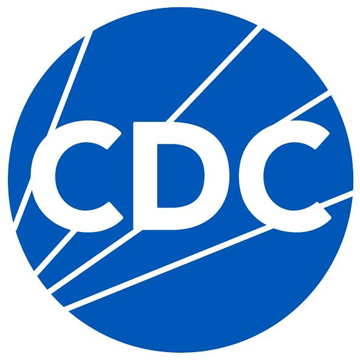ELLY GRIMM
• Leader & Times
Colder weather will be making its way through the area, which means people will be more susceptible to illnesses. With that in mind, the Centers for Disease Control and Prevention (CDC) recently announced recommendations for a pair of important vaccines.
Last Wednesday, CDC Director Mandy Cohen endorsed the CDC Advisory Committee on Immunization Practices' (ACIP) recommendation for people 65 years and older and those who are moderately or severely immunocompromised to receive a second dose of 2024-2025 COVID-19 vaccine six months after their first dose.
“These updated recommendations also allow for flexibility for additional doses (i.e., three or more) for those who are moderately or severely immunocompromised, in consultation with their healthcare provider (a strategy known as shared clinical decision making),” a release from the CDC noted. “The recommendation acknowledges the increased risk of severe disease from COVID-19 in older adults and those who are immunocompromised, along with the currently available data on vaccine effectiveness and year-round circulation of COVID-19. The recommendation also provides clarity to healthcare providers on how many doses should be given per year to people who are moderately or severely immunocompromised and is meant to increase coverage of this second dose for that group. Data continues to confirm the importance of vaccination to protect those most at risk for severe outcomes of COVID-19. Receiving recommended 2024-2025 COVID-19 vaccines can restore and enhance protection against the virus variants currently responsible for most infections and hospitalizations in the United States.”
COVID-19 vaccination also reduces the chance of suffering the effects of Long COVID, which can develop during or following acute infection and last for an extended duration, the CDC release noted, and CDC and ACIP will continue to monitor COVID-19 vaccine safety and effectiveness. CDC continues to recommend that everyone stay up to date on their COVID-19 vaccines, especially people ages 65 years and older and those with weakened immune systems.
"This vote allows people to make the best decisions possible to keep themselves and their loved ones safe from COVID-19,” Cohen noted in the CDC release. “CDC will continue to educate the public on how and when to get their updated vaccinations so they can risk less severe illness and do more of what they love."
For more information on updated COVID-19 vaccines, people can visit https://www.cdc.gov/covid/index.html.
Last Wednesday also saw Cohen endorse the CDC Advisory Committee on Immunization Practices' (ACIP) recommendation for lowering the age for pneumococcal vaccination from 65 to 50 years old.
“Lowering the age for pneumococcal vaccination gives more adults the opportunity to protect themselves from pneumococcal disease at the age when risk of infection substantially increases,” a release from the CDC noted. “Pneumococcal bacteria can cause serious illnesses, including pneumonia, meningitis, and bloodstream infections, and older adults are at increased risk for pneumococcal disease. Adults 50 years or older should talk with a healthcare provider to make sure they're up to date with pneumococcal vaccination. Now is a great time to get vaccinated against pneumococcal disease in preparation for the winter respiratory season.”
“People spread pneumococcal bacteria to others through direct contact with respiratory secretions, like saliva or mucus. People can get pneumococcal disease more than once, and healthcare providers generally don't prescribe antibiotics after exposure to help prevent someone from getting a pneumococcal infection,” further information on the CDC Web site noted. “If healthcare providers suspect meningitis or a bloodstream infection, they will collect samples of cerebrospinal fluid or blood. Cerebrospinal fluid is the fluid that surrounds the brain and spinal cord. They then send the samples to a laboratory for testing. Growing the bacteria in a laboratory helps identify the specific type of bacteria causing the infection. Laboratories may also use molecular detection methods to test for these bacteria in samples. Knowing the cause helps healthcare providers choose the right treatment, including which antibiotic will work best. Healthcare providers can use a urine test to help make a diagnosis of pneumococcal pneumonia in adults. Healthcare providers use antibiotics to treat pneumococcal disease. However, some pneumococcal bacteria have become resistant to certain antibiotics used to treat these infections. Antibiotic testing shows which antibiotics will be most successful at treating the infection.”















